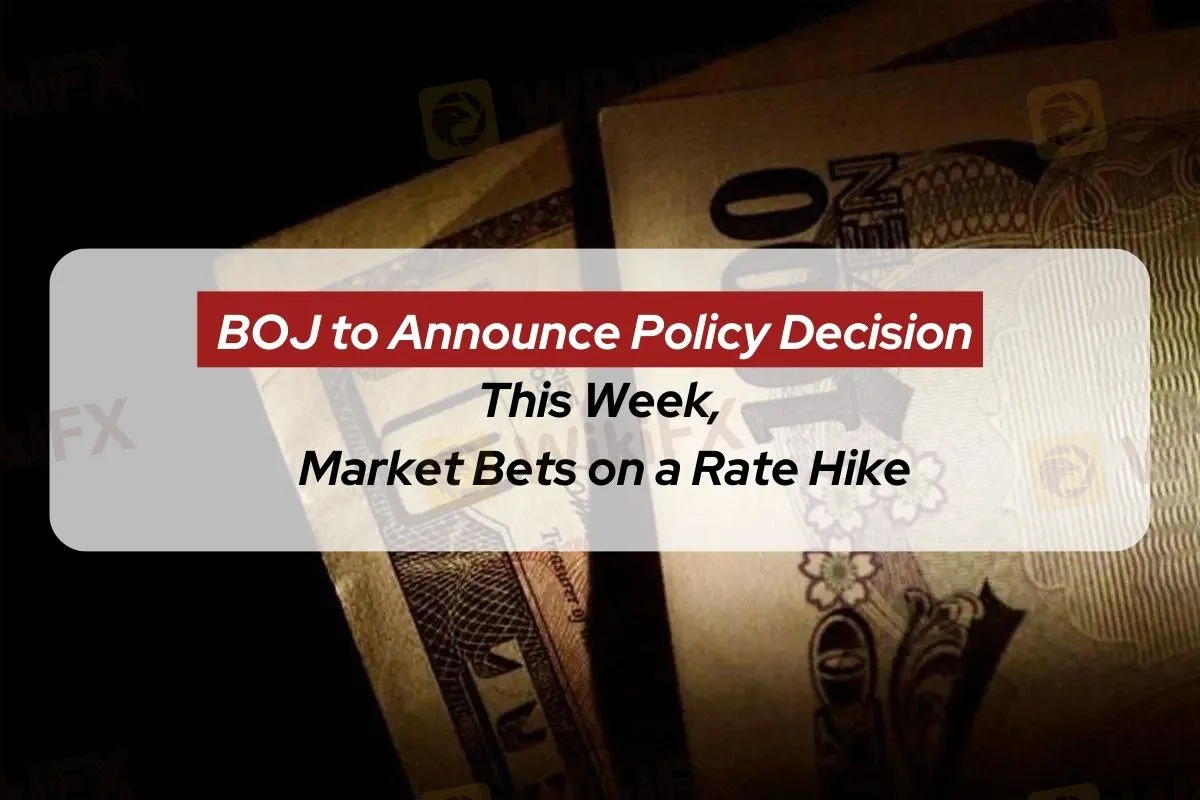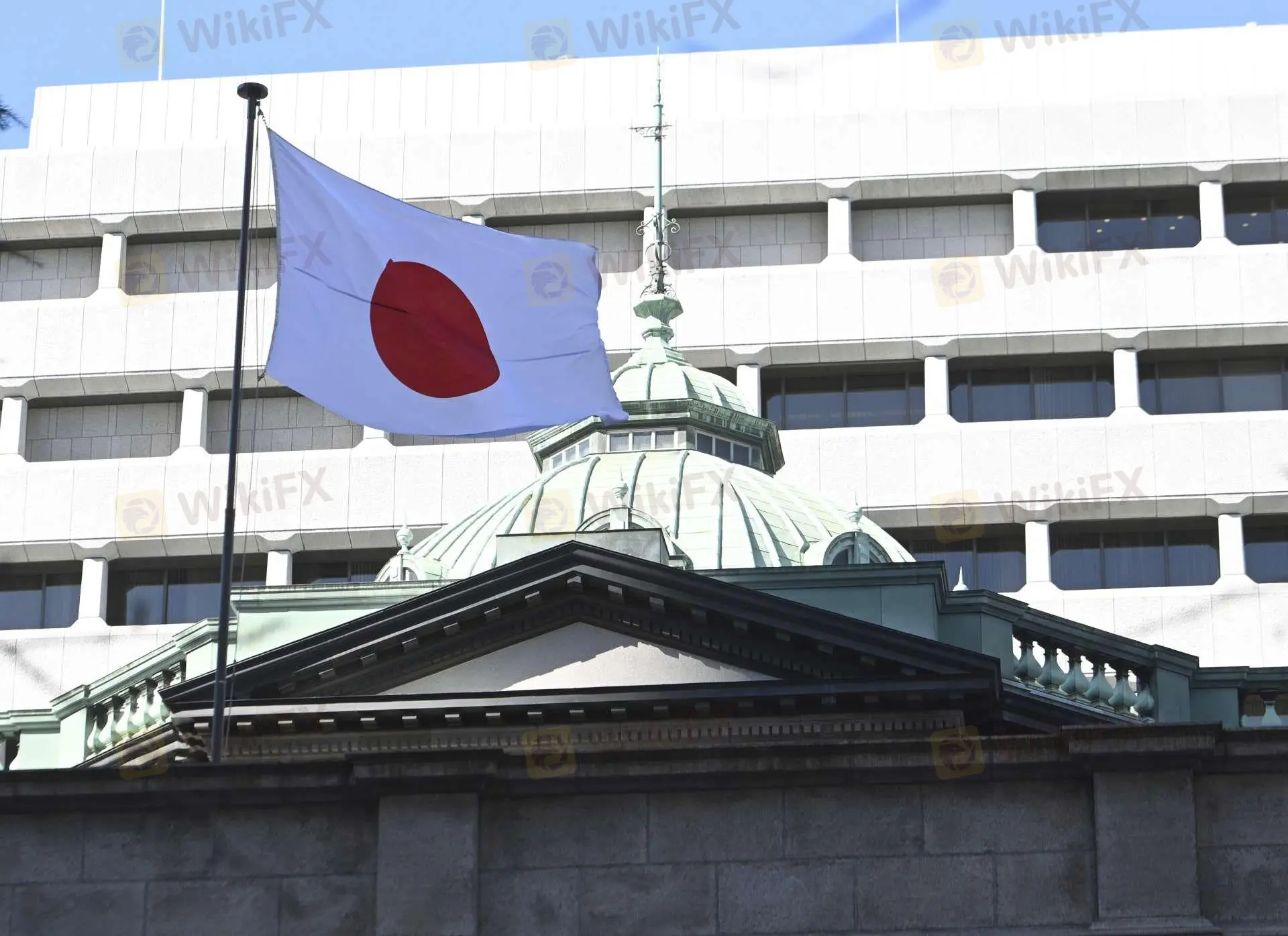BOJ to Announce Policy Decision This Week, Market Bets on a Rate Hike
Abstract:The yen strengthens past 156 as markets anticipate a rate hike from the Bank of Japan this week.

Yen Strengthens Beyond 156 as Market Expects a Rate Hike
On January 24, the Bank of Japan (BOJ) will announce its latest policy decision, followed by a press conference by Governor Kazuo Ueda. Recent surveys indicate a near-unanimous market expectation of a rate hike this week. Overnight index swaps (OIS) pricing suggests a 99% probability of a hike, reflecting strong investor anticipation of tighter monetary policy. According to Bloomberg‘s latest survey, about 74% of economists expect the BOJ to raise rates by 25 basis points at this meeting, up from 52% in the previous survey. This strong expectation has been partially reflected in the yen’s performance over recent weeks, with the currency surging beyond the 156 level against the US dollar, hitting a recent high.

Nomura Securities suggests that the BOJ‘s rate hike will serve as a key driver for yen appreciation, especially as global central banks broadly tighten monetary policy. Following this hike, the BOJ may adopt a more flexible policy trajectory, further solidifying the yen’s position in global markets.
Wage Growth and Persistent Inflation Support Tightening Measures
The BOJ‘s latest regional economic report highlights structural labor shortages driving companies to raise wages. Many firms anticipate continuing wage hikes into 2025, providing strong support for the BOJ’s tightening policy. Meanwhile, domestic inflationary pressures remain evident. Data shows that Japan‘s core consumer price index (CPI) rose 2.7% year-on-year in November 2024, marking 39 consecutive months of growth. Notably, Tokyo’s December CPI growth accelerated to 3.0% year-on-year from 2.6% in November, with the month-on-month growth rising from 0.4% to 0.5%, indicating persistent price pressures.

Historically, wage growth and price increases in Japan have been closely linked. As spring labor negotiations approach, the expectation of wage hikes could further strengthen economic activity and continue to support inflation. These data points provide a solid foundation for the BOJ‘s tightening policy, reinforcing market bets on this week’s rate hike.
Key Hurdle: Global Market Volatility
While the market has high expectations for a BOJ rate hike this week, external market volatility could pose a potential obstacle. Uncertainty in international markets, particularly regarding possible U.S. economic and trade policies, could significantly influence the BOJs policy decisions. Reuters analysis suggests that if U.S. policy changes trigger significant market swings, the BOJ might reconsider the timing of a rate hike.

Additionally, BOJ Deputy Governor Ryozo Himino recently emphasized the importance of timing in monetary policy implementation, as it is critical for economic stability. He further stated that the board would base its discussions on Japans economic fundamentals while considering global market dynamics before making a final decision.
Should the BOJ hike rates as expected, the yen could strengthen further against the U.S. dollar and other major currencies. Analysts predict that yen appreciation will have a dual impact on Japans economy. On one hand, a stronger yen may weaken the competitiveness of export-driven industries, particularly in the automotive and electronics sectors. On the other hand, a strong yen could reduce the cost of imported energy and raw materials, potentially mitigating inflationary pressures.
Read more

Prop Trading Firms vs. CFD Brokers: Who’s Winning the Retail Trading Race?
In recent years, a new breed of retailer-focused trading firms has emerged: proprietary (prop) trading outfits that recruit individual traders to trade the firm’s capital under structured rules. Boasting low entry costs, clear risk parameters, and profit-sharing incentives, these prop firms are rapidly winning over retail traders, many of whom previously traded Contracts for Difference (CFDs) with established online brokers. As prop trading revenues accelerate, a key question arises: Are CFD brokers losing business to prop firms?

Another ‘Tan Sri’ Targeted, RM347 Million in Assets Seized in MBI Scam
Malaysia’s police are stepping up their investigation into the MBI investment scam, a multi-billion ringgit fraud that has dragged on for nearly a decade. The Royal Malaysian Police (PDRM) is now planning to arrest another prominent figure with the title ‘Tan Sri’, following recent arrests and major asset seizures.

Tradu Joins TradingView for Seamless CFD and Forex Trading
Tradu, a global trading platform, integrates with TradingView for seamless CFD and forex trading, offering transparency, tight spreads, and fast execution.

Protect Your Portfolio in the Storm | What Are Safe Haven Assets?
Gold surged to an all-time high on Tuesday, driven by renewed weakness in the US dollar, ongoing trade war tensions, and critical remarks from President Donald Trump aimed at the Federal Reserve. These factors fuelled strong demand for safe-haven assets, pushing bullion above US$3,485 an ounce for the first time. But what exactly are safe haven assets? Why is everyone raving about them?
WikiFX Broker
Latest News
Germany’s April PMI Falls Below 50 as Service Sector Stumbles
PayPal Opens Regional Hub in Dubai, Expands Middle East Reach
FINRA fines SpeedRoute for alleged rule violations
RM15,000 Profit Turned into RM1.1 Million Loss for Engineer!
New to FX Trading? Stop! Read These Warnings First
Prop Trading Firms vs. CFD Brokers: Who’s Winning the Retail Trading Race?
TRADE.com UK Sold to NAGA Group Amid 2024 Revenue Drop
Why Binance Tightens Crypto Transfer Rules for South Africans?
Coinbase Eyes U.S. Federal Bank Charter for Crypto Growth
Why People Fall for Online Trading Scams
Rate Calc
